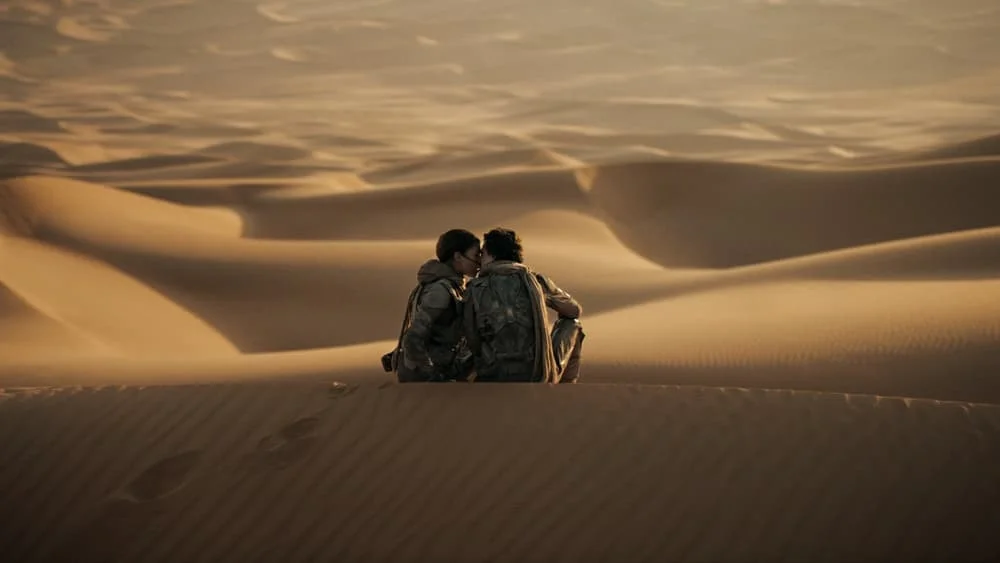The unfortunate contradiction of Denis Villeneuve’s “Dune” films is that while he captures the size and scope of new fantastical worlds better than almost anyone working, he can’t seem to fill those worlds with much personality or meaning — at least not as much as the world warrants. It’s exciting to see a world you could never imagine crafted with such realism. Every visual choice is so meticulous, the seams so well covered, that it is a wholly immersive experience. But the novelty of that reality wears off quickly, and when it does, what are you left with? That’s not to say there isn’t thematic depth to the text of “Dune,” especially relative to a blockbuster landscape that values escapism over having anything to say, it just doesn’t resonate in the way films of similar scope do.
Most of “Dune: Part Two”’s problems stem from being the second half of a lumbering, emotionless first act. “Part Two” is far more propulsive than the first, moving from set piece to set piece with an energy sorely lacking in the overwhelming setup of “Part One.” But while most of “Part Two” is spent knocking down the dominoes from the first installment, the power of those moments depends entirely on you caring about the dominoes in the first place. No doubt there are plenty of people who care, as the wildly positive reactions thus far indicate, but there isn’t much to latch onto emotionally for those who don't. In theory, Paul’s moral questioning of whether or not he should take his place as the messiah for the Fremen fundamentalists is exactly what I want in a blockbuster: big ideas handled with complex grayness where the decision made isn’t always the right one. But I don’t care enough about Paul as a character. He’s too stoic, too much of a blank slate, and Chalamet doesn’t inject enough personality through his performance to compensate for the character being underwritten. That legwork needed to be done in “Part One,” and because it wasn’t, “Part Two” suffers.
The frustrating part about the “Dune” films is that they can inject some needed energy and personality in the right circumstances, but many critical pieces just don’t hit the mark. One that does, however, is Austin Butler as Feyd-Rautha. From his introduction, we can feel Butler’s presence. He is a guy to be afraid of, a loose cannon that can and would do anything to benefit himself or show himself off. After Butler’s star-making turn in “Elvis,” you can tell why he was a great fit to play The King. He’s a natural showman and immediately fills the vast nothingness underneath Villeneuve’s impressive spectacle. Feyd-Rautha is not a complex role. Everything needs to be on the surface, and it needs to be jarring, and Butler throws everything he has into it. For a series that doesn’t have the best track record for casting — often opting for the name over someone who might fit the role — Butler is perfectly cast and gives the kind of performance that this film needs.
I don’t want to sound too down on “Dune: Part Two” because it is good, an improvement on the first film, and a standout among other big-budget fantasy spectacles that Hollywood has been churning out of late. It could just be so much more than it is. Its level of craft is challenged only by James Cameron’s “Avatar” films, both in the imagination of its digital effects and the way they incorporate into tactile environments. Oddly enough, Cameron’s films also feel empty relative to their awe-inspiring technical ambition. But while “Avatar” suffers from its characters and themes feeling too broad to have depth, “Dune” has the opposite problem. It’s too specific in its allegories, too limited in its thematic scope to match its aesthetic scale, and while it reaches deep, too much space is left on the sides. Unless you care deeply about this specific conflict, you will not get much out of “Dune.”

